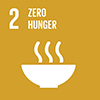
Lowry and Colleagues Receive Two NSF Awards for Nanoparticle Research
Professor Greg Lowry of Civil and Environmental Engineering (CEE) has received two grants from the National Science Foundation (NSF) totaling $2.2 million to improve agricultural efficiency using nanoparticles (NPs) for targeted delivery of nutrients and plant protection products in crop plants.
The first award of $1.7 million will explore the potential of NPs as a nitrogen delivery system, a vital nutrient for plant growth and the primary agent in fertilizers. According to Lowry, replacing traditional fertilizer application to soil with foliar NP delivery would be a massive leap ahead for agriculture, significantly improving the efficiency of nitrogen uptake, lowering energy inputs, and reducing harmful runoff.
This task comes with many challenges however, not least of which will be scaling up their NP manufacturing process and utilizing a sustainable and readily available source of nitrogen. Joining Lowry in this project will be CEE’s Assistant Professor Jerry Wang, Chemical Engineering’s Professor Bob Tilton, and researchers from the University of Kentucky and University of California, Riverside.
Lowry’s second award of half a million dollars from the NSF will fund the creation nano-enabled materials for targeted delivery to chloroplasts, capable of turning plant chloroplasts into “ubiquitous solar powered molecular factories for personalized biomanufacturing devices.” This is a collaborative project with researchers from the University of California, Riverside and University of California, San Diego.
This team will converge principles of nanotechnology and plant biology to modify these organelles, usually dedicated to capturing sunlight to produce energy, to create an engineered mRNA vaccine. These tools could provide a cheap and accessible alternative to currently expensive vaccine manufacturing processes, and hopefully help alleviate global inequities in vaccine availability. This project will also be conducted in partnership with the University of California, Riverside.
Lowry and Tilton have filed a patent on their novel NP delivery materials and their upcoming work on nitrogen delivery and environmentally responsive polymers holds huge promise for an agriculture sector threatened by a rapidly changing climate.
“We are essentially doing targeted ‘drug delivery’ in plants, which has never been attempted before,” says Lowry. “We hope that these projects will ultimately provide disruptive technologies for both agriculture and the agrochemical industries, making agriculture more sustainable and democratizing vaccine production.”
 This story demonstrates CMU's work toward attaining Sustainable Development Goal 2 of the 17 Global Goals to create a more equitable and viable planet by 2030.
This story demonstrates CMU's work toward attaining Sustainable Development Goal 2 of the 17 Global Goals to create a more equitable and viable planet by 2030.